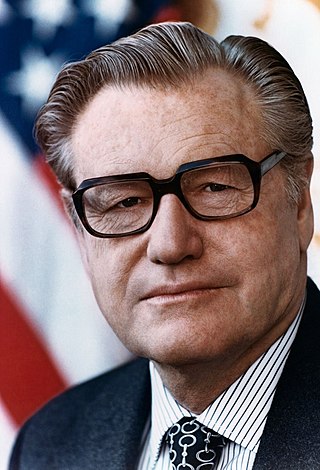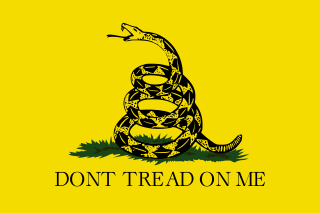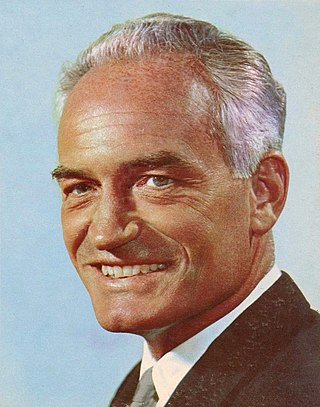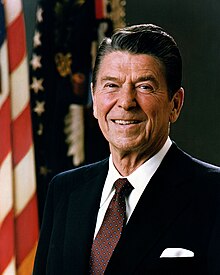Social conservatism is a political philosophy and a variety of conservatism which places emphasis on traditional social structures over social pluralism. Social conservatives organize in favor of duty, traditional values and social institutions, such as traditional family structures, gender roles, sexual relations, national patriotism, and religious traditions. Social conservatism is usually skeptical of social change, instead tending to support the status quo concerning social issues.
New Right is a term for various right-wing political groups or policies in different countries during different periods. One prominent usage was to describe the emergence of certain Eastern European parties after the collapse of the Soviet Union. In the United States, the Second New Right campaigned against abortion, homosexuality, the Equal Rights Amendment (ERA), the Panama Canal Treaty, affirmative action, and most forms of taxation.

The Rockefeller Republicans were members of the United States Republican Party (GOP) in the 1930s–1970s who held moderate-to-liberal views on domestic issues, similar to those of Nelson Rockefeller, Governor of New York (1959–1973) and Vice President of the U.S. (1974–1977). Rockefeller Republicans were most common in the Northeast and the industrial Midwestern states, while they were rare in the South and the West.

Young Americans for Freedom (YAF) is a conservative youth activism organization that was founded in 1960 as a coalition between traditional conservatives and libertarians on American college campuses. It is a 501(c)(3) nonprofit organization and the chapter affiliate of Young America's Foundation. The purposes of YAF are to advocate public policies consistent with the Sharon Statement, which was adopted by young conservatives at a meeting at the home of William F. Buckley in Sharon, Connecticut, on September 11, 1960.
In American politics, a Libertarian Republican is a politician or Republican Party member who has advocated Libertarian policies while typically voting for and being involved with the Republican Party.
The Independent Gay Forum was an organization that sponsored a website featuring free access to articles and opinions penned by gay economical conservative, center-right Independent and libertarian gay authors. Its raison d'etre was dissatisfaction by some lesbians and gay men with the alleged center-left or liberal orthodoxy of the lesbian and gay rights movement in the United States. It was founded around 1998 and dissolved in 2010, believing its mission had been largely accomplished. Its blog, by Stephen H. Miller, continues at the website IGFCultureWatch, which also hosts the Forum's article archives.
The Republican Party in the United States includes several factions, or wings. During the 19th century, Republican factions included the Half-Breeds, who supported civil service reform; the Radical Republicans, who advocated the immediate and total abolition of slavery, and later advocated civil rights for freed slaves during the Reconstruction era; and the Stalwarts, who supported machine politics.

Frank Straus Meyer was an American philosopher and political activist best known for his theory of "fusionism" – a political philosophy that unites elements of libertarianism and traditionalism into a philosophical synthesis which is posited as the definition of modern American conservatism. Meyer's philosophy was presented in two books, primarily In Defense of Freedom: A Conservative Credo (1962) and also in a collection of his essays, The Conservative Mainstream (1969). Fusionism has been summed up by E. J. Dionne, Jr. as "utilizing libertarian means in a conservative society for traditionalist ends."
In American politics, a conservative Democrat is a member of the Democratic Party with more conservative views than most Democrats. Traditionally, conservative Democrats have been elected to office from the Southern states, rural areas, the Rust Belt, and the Midwest. In 2019, the Pew Research Center found that 14% of Democratic and Democratic-leaning registered voters identify as conservative or very conservative, 38% identify as moderate, and 47% identify as liberal or very liberal.
Conservatism in the United States is based on a belief in limited government, individualism, traditionalism, republicanism, and limited federal governmental power in relation to U.S. states. It is one of two major political ideologies of the United States. Conservative and Christian media organizations and American conservative figures are influential, and American conservatism is a large and mainstream ideology in the Republican Party and nation. As of 2021, 36 percent of Americans consider themselves conservative, according to polling by Gallup, Inc.
The Old Right is an informal designation used for a branch of American conservatism that was most prominent from 1910 to the mid-1950s, but never became an organized movement. Most members were Republicans, although there was a conservative Democratic element based largely in the Southern United States. They are termed the "Old Right" to distinguish them from their New Right successors who came to prominence in the 1960s, 1970s and 1980s.
Libertarianism is a political philosophy that upholds liberty as a core value. Libertarians seek to maximize autonomy and political freedom, emphasizing equality before the law and civil rights to freedom of association, freedom of speech, freedom of thought and freedom of choice. Libertarians are often skeptical of or opposed to authority, state power, warfare, militarism and nationalism, but some libertarians diverge on the scope of their opposition to existing economic and political systems. Various schools of libertarian thought offer a range of views regarding the legitimate functions of state and private power. Different categorizations have been used to distinguish various forms of Libertarianism. Scholars distinguish libertarian views on the nature of property and capital, usually along left–right or socialist–capitalist lines. Libertarians of various schools were influenced by liberal ideas.

In the United States, libertarianism is a political philosophy promoting individual liberty. According to common meanings of conservatism and liberalism in the United States, libertarianism has been described as conservative on economic issues and liberal on personal freedom, often associated with a foreign policy of non-interventionism. Broadly, there are four principal traditions within libertarianism, namely the libertarianism that developed in the mid-20th century out of the revival tradition of classical liberalism in the United States after liberalism associated with the New Deal; the libertarianism developed in the 1950s by anarcho-capitalist author Murray Rothbard, who based it on the anti-New Deal Old Right and 19th-century libertarianism and American individualist anarchists such as Benjamin Tucker and Lysander Spooner while rejecting the labor theory of value in favor of Austrian School economics and the subjective theory of value; the libertarianism developed in the 1970s by Robert Nozick and founded in American and European classical liberal traditions; and the libertarianism associated with the Libertarian Party, which was founded in 1971, including politicians such as David Nolan and Ron Paul.
In American political theory, fiscal conservatism or economic conservatism is a political and economic philosophy regarding fiscal policy and fiscal responsibility with an ideological basis in capitalism, individualism, limited government, and laissez-faire economics. Fiscal conservatives advocate tax cuts, reduced government spending, free markets, deregulation, privatization, free trade, and minimal government debt. Fiscal conservatism follows the same philosophical outlook as classical liberalism. This concept is derived from economic liberalism.
In American politics, fusionism is the philosophical and political combination or "fusion" of traditionalist and social conservatism with political and economic right-libertarianism. Fusionism combines "free markets, social conservatism, and a hawkish foreign policy". The philosophy is most closely associated with Frank Meyer.

American political ideologies conventionally align with the left–right political spectrum, with most Americans identifying as conservative, liberal, or moderate. Contemporary American conservatism includes social conservatism and fiscal conservatism. The former ideology developed as a response to communism and the civil rights movement, while the latter developed as a response to the New Deal. Contemporary American liberalism includes social liberalism and progressivism, developing during the Progressive Era and the Great Depression. Besides conservatism and liberalism, the United States has a notable libertarian movement, developing during the mid-20th century as a revival of classical liberalism. Historical political movements in the United States have been shaped by ideologies as varied as republicanism, populism, separatism, fascism, socialism, monarchism, and nationalism.

Libertarian conservatism, also referred to as conservative libertarianism and conservatarianism, is a political and social philosophy that combines conservatism and libertarianism, representing the libertarian wing of conservatism and vice versa.

The Reagan era or the Age of Reagan is a periodization of recent American history used by historians and political observers to emphasize that the conservative "Reagan Revolution" led by President Ronald Reagan in domestic and foreign policy had a lasting impact. It overlaps with what political scientists call the Sixth Party System. Definitions of the Reagan era universally include the 1980s, while more extensive definitions may also include the late 1970s, the 1990s, and even the 2000s. In his 2008 book, The Age of Reagan: A History, 1974–2008, historian and journalist Sean Wilentz argues that Reagan dominated this stretch of American history in the same way that Franklin D. Roosevelt and his New Deal legacy dominated the four decades that preceded it.

This timeline of modern American conservatism lists important events, developments and occurrences which have significantly affected conservatism in the United States. With the decline of the conservative wing of the Democratic Party after 1960, the movement is most closely associated with the Republican Party (GOP). Economic conservatives favor less government regulation, lower taxes and weaker labor unions while social conservatives focus on moral issues and neoconservatives focus on democracy worldwide. Conservatives generally distrust the United Nations and Europe and apart from the libertarian wing favor a strong military and give enthusiastic support to Israel.
Barstool conservatism is a name for a type of political conservatism in the United States, associated with Dave Portnoy, founder and CEO of the Barstool Sports digital "media empire", and his audience of "stoolies", made up primarily of younger men. The term was coined by journalist Matthew Walther.








